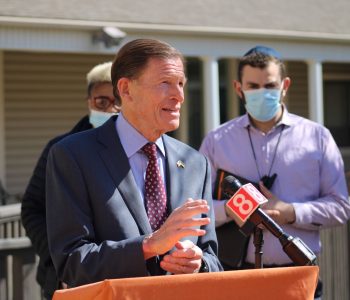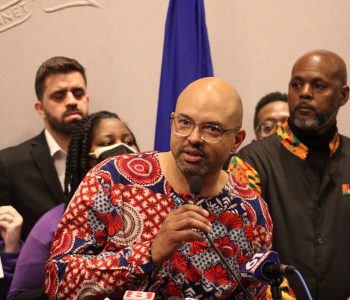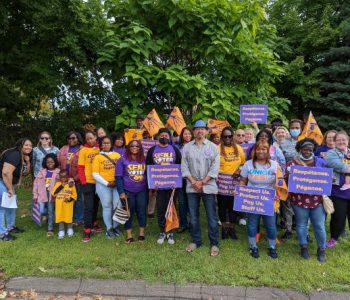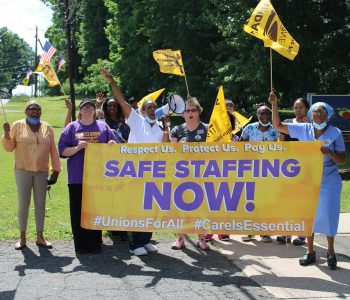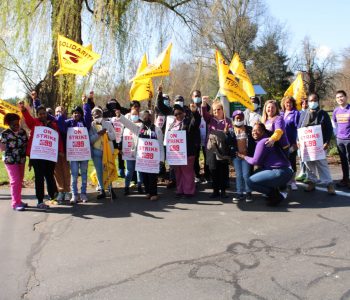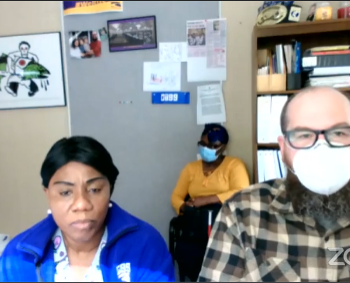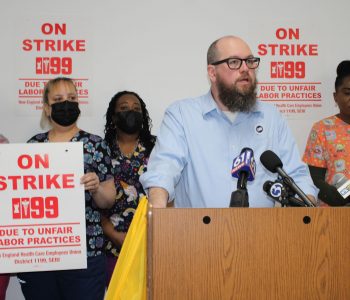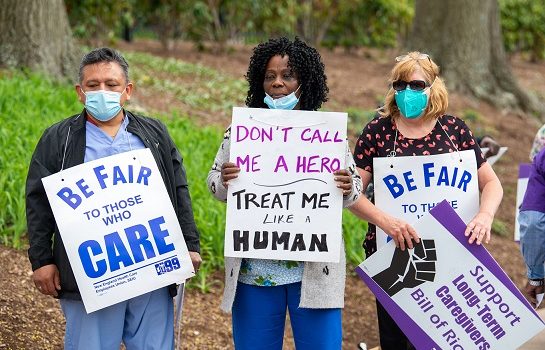 Nursing Homes & Hospitals
Nursing Homes & Hospitals
Governor Ned Lamont’s economic proposal in a recent letter to the Union from OPM Secretary Melissa McCaw clearly falls short of the allocation of resources necessary to both lift nursing home workers out of poverty and improve staffing numbers for direct care services.
Some 4,000 frontline workers at 39 nursing homes in Connecticut continue to make preparations to strike for livable wages and benefits, and to ensure proper staffing ratios for quality services. The first strike lines with over 3,400 caregivers are scheduled to begin this Friday at 6:00 AM at 33 nursing homes. Six more nursing homes have confirmed strike notices with more than 600 workers for May 28 at 6:00 AM.
“We are facing a critical situation in the nursing home industry with workers trapped in poverty. Operators cannot find enough job applicants to hire at current industry wages. The reduced staffing teams of existing nurses, assistants and other supports bear the brunt of ruthless workloads, and vulnerable patients and residents get less time of direct care,” said Rob Baril, president of District 1199 New England, SEIU.
The governor’s proposal of a yearly 4.5% wage increase for the next two years would not be sufficient to establish a $20 per hour minimum in the union contracts for certified nursing assistants. For hundreds of housekeeping, dietary and laundry support workers, the proposed raise would not even keep up with the state’s minimum wage laws.
“The governor’s proposal would not provide the funding needed to right the wrongs of Covid-19 and to correct decades of chronic devaluation of the nursing home labor sector, whose workers are majority Black, Brown and White working-class women,” said Baril. “Workers have suffered untold trauma in the last year, with thousands of resident deaths and nearly two dozen worker fatalities in our union.”
The remaining economic items of the governor’s proposal are not structural corrections of the nursing home industry or do not apply to workers whatsoever.
Regarding the “10% Rate Increase (9 Months)”, a temporary rate increase is already in effect since November of 2020. An additional temporary rate increase that is not dedicated to worker wages will do little to nothing to lift workers out of poverty and place the industry in a position to hire new staff. Further, the increase is subject to and conditioned on new occupancy requirements for nursing homes. The Union expects that this temporary rate will be counterproductive, working as an incentive to close nursing homes in Black and Brown communities and reducing availability of nursing home services in our cities.
The governor’s proposals for training advancements and retirement are completely inadequate for an impoverished workforce that carried the nursing home industry on its shoulders through an extremely dangerous public health emergency.
“As the governor calls on the National Guard to support nursing homes during the strike, we call on him and his team to put those resources to better use by funding the services provided by nursing home workers. The danger of the work and the low wages have created an extreme staffing crisis. This is an urgent matter of racial and economic justice,” said Baril. “We think that it is appalling that the governor is protecting the COVID-19 bounties of the wealthiest individuals in the wealthiest state of the country rather than raising standards to livable wages, affordable health care and retirement security for long-term care workers.”
###
